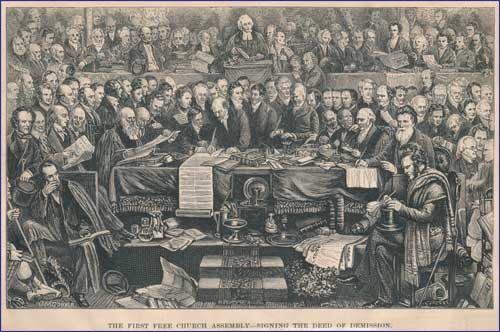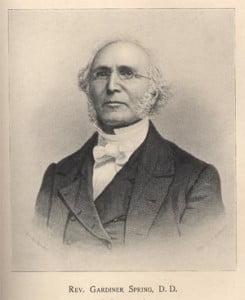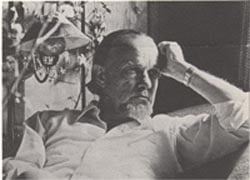STUDIES IN THE WESTMINSTER SHORTER CATECHISM
Q. 72. What is forbidden in the seventh commandment?
A. The seventh commandment forbiddeth all unchaste thoughts, words, and actions.
Scripture References: Matthew 5:28; Ephesians 5:3-4
Questions:
1. What does God forbid in this commandment under the name of “adultery”?
God forbids all sorts of unchastity and uncleanness. (Eph. 5:3)
2. Where can such unchastity and uncleanness take place?
Unchastity and uncleanness can take place in the thoughts and desires of the heart as taught by our Lord in Matt. 5:28. It can take place in the words we use, whether we are talking seriously or in a jesting way. (Eph. 5:4). It can take place in our actions; the actual committing of adultery.
3. Are there actions that would tend to lead us into these forbidden areas?
Yes, in this day and age especially there are many things about which we must be very watchful. To name a few of them:
(1) Modern psychology with its stress upon “self-expression”, with the idea that it is alright to commit adultery if you really love
a person. We must be careful we are not brainwashed in this area which would tend to lower our resistance to sin.
(2) Impure books and magazines.
(3) The theater and television. It would be good for us to make a “covenant with our eyes” (Job 31:1)
(4) Modern dancing or, as stated in the Larger Catechism, “lascivious dancing”.
4. Why is it so important for us to preserve our chastity and of others?
We must preserve it because we were made in the image of God and are not beasts who are under no law. As Christians, we should walk in fear of the Lord at all times. Since our bodies are the temples of the Holy Ghost, we are not our own.
5. What is divorce without grounds according to the Word and would one obtaining one be guilty of adultery if he remarried?
The Confession of Faith states the answer very well in Chapter 24.6 and the person obtaining a divorce without Scriptural grounds would be guilty of’ adultery if he remarried.
6. In this area is the innocent party under orders from the Word to sue for divorce?
No, this is a privilege of the innocent party, not something that must be done.
A PURE SOUL
“Abstain (hold oneself from) from all appearances of evil.” Such is the teachings found in I Thess. 5:22. If, as born again believers, we want to be certain that we do not break the seventh commandment, such must be our position. We must have such a sensibility to sin in this realm that we will flee from anything that looks like sin. We shall take such a stand for the Lord in all of our ways, our conversation even our thoughts, that holiness unto the Lord will shine forth from us and we will be lights unto the world.
In this day and age in which we live, we are bombarded on every side by the lowered standards of the world in this regard. The Hollywood and Broadway approach to marriage, to relations between male and female have taken over the country. In actions, in speech, in dress, the standards of the day are no longer the Bible, but the way prominent people live. Fornication, adultery, unscriptural divorce is the order of the day among many, and these things have been accepted as a matter of personal preference and have nothing at all to do with the law of God.
Not long ago a Christian said to me, “Pastor, it is so hard to live as one should today. Every book and magazine you pick up to read, every picture you go to see, every T.V. program is like another bit of darkness around you. What can a Christian do? How can he live in the midst of it?” It is true that things in this area seem to be getting worse. People have succumbed to the new way of thinking and the Christian finds himself in the midst of the world. But this is no more, or no less, than what God promised us. And He also promised us that He will not submit us to any temptation we cannot bear. There must be a greater effort on our part.
There must be a praying unto Him for a pureness of soul. “Create in me a clean heart, O, God” (Psalm 51:10) must be on our lips constantly. We must pray that the blood of Christ will cover us every day of our lives, wherever we go, whatever we do. The soul of the Christian is the “holy of holies” and it must be consecrated unto Him. The seventh commandment is from the Lord, and it must not be broken. If we simply depend on our own strength, we will break it time and time again. But by His help, praying for His grace, I Peter 1: 16 can be true of each of us.
Published By: The Shield and Sword, Inc.
Vol. 5 No.4 (April 1966)
Rev. Leonard T. Van Horn, Editor



